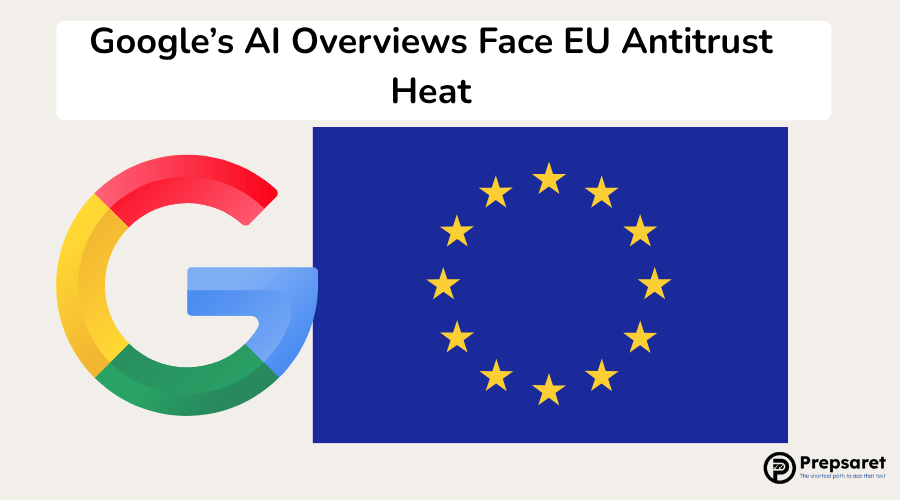Highlights:
- Google is facing an EU antitrust complaint over its AI Overviews, accused of harming independent publishers.
- Publishers say they cannot opt out of AI usage without being penalized in search visibility.
- Google defends the feature, stating it boosts discovery and traffic.
- The complaint has been filed with both the European Commission and the UK Competition and Markets Authority.
- Advocacy groups argue that AI Overviews pose a serious threat to the future of independent journalism.
Independent Publishers Challenge Google Over AI Overviews in EU Antitrust Complaint
A coalition of independent publishers has filed an antitrust complaint with the European Commission, accusing Google of abusing its dominance in online search through the deployment of AI Overviews, automated summaries generated using website content. The group, led by the Independent Publishers Alliance and supported by the Movement for an Open Web and Foxglove Legal, claims this feature causes serious and ongoing harm to publishers’ businesses by diverting traffic, readership, and revenue.
AI Overviews at the Center of Controversy
Google’s AI Overviews, introduced globally across more than 100 countries, are designed to answer users’ questions directly by summarizing information from various websites. These summaries are prominently placed above traditional search results. Since May, Google has also started inserting advertisements into them.
According to Reuters, the publishers argue that visibility pushes their original content down the results page, reducing the chances of users clicking through to their sites.
The complaint, dated June 30, argues that publishers cannot opt out of having their content used in AI training or summaries without also forfeiting their visibility in Google Search entirely. “Independent news faces an existential threat,” said Rosa Curling, co-director of Foxglove, urging regulators to intervene.
Google Responds, Citing Benefits to Discovery
In response, Google defended its AI innovations, saying the feature “creates new opportunities for content and businesses to be discovered.” A company spokesperson noted that billions of clicks are sent to publishers each day and that traffic patterns can shift due to many factors such as seasonal demand or algorithm updates.
Google also pushed back on the publishers’ claims, calling them based on “highly incomplete and skewed data.”
Regulatory Scrutiny Grows
While the European Commission declined to comment, the UK’s Competition and Markets Authority has confirmed receipt of the complaint. The move comes as global scrutiny increases over how major tech platforms use AI-generated content and its implications for content ownership, competition, and journalism.
The publishers are seeking interim measures to prevent further damage and ensure they are not forced to trade visibility for control over their own work. The case adds to a growing number of legal challenges targeting AI-generated content’s effect on digital ecosystems.
Also in the News:
- Pearson & Google Cloud Launch Generative AI Tools
- Microsoft to cut about 4% of jobs amid hefty AI bets
Considering professional growth?
Explore our certification study materials and guides to help you manage resources, grow your career, and stay competitive:
- CompTIA Certification study Materials – Build your skills in IT support, networking, and cybersecurity.
- HR Certification Study Materials – Learn HR fundamentals, compliance, and strategic planning.
- PMP Certification Prep – Master project management, budgeting, and resource control.

